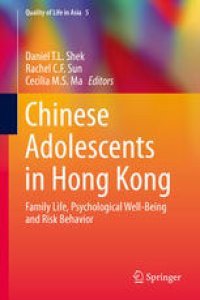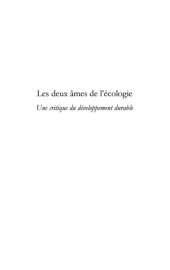
Ebook: Chinese Adolescents in Hong Kong: Family Life, Psychological Well-Being and Risk Behavior
- Tags: Quality of Life Research, Family
- Series: Quality of Life in Asia 5
- Year: 2014
- Publisher: Springer-Verlag Singapur
- Edition: 1
- Language: English
- pdf
This book documents the findings of a 3-year longitudinal study on the quality of family life, personal well-being and risk behavior in Chinese adolescents in Hong Kong. It presents the profiles of quality of family life (family functioning, parental behavioral control, parental psychological control and parent-child relational qualities); personal well-being (positive youth development and life satisfaction measures) and adolescent risk behavior (substance abuse, delinquency, self-harm and suicidal behavior and behavioral intentions to engage in risk behavior) in different adolescent populations across time. It also examines theoretical issues concerning the interrelationships between family quality of life, psychological well-being and risk behavior in adolescents. Practically speaking, the findings can help youth workers appreciate the importance of family quality of life and positive youth development in shaping the personal well-being and risk behavior in Chinese adolescents in Hong Kong.
This book documents the findings of a 3-year longitudinal study on the quality of family life, personal well-being and risk behavior in Chinese adolescents in Hong Kong. It presents the profiles of quality of family life (family functioning, parental behavioral control, parental psychological control, and parent-child relational qualities); personal well-being (positive youth development and life satisfaction measures); and adolescent risk behavior (substance abuse, delinquency, self-harm and suicidal behavior, and behavioral intentions to engage in risk behavior) in different adolescent populations across time. It also examines theoretical issues concerning the interrelationships between family quality of life, psychological well-being and risk behavior in adolescents. Practically speaking, the findings can help youth workers appreciate the importance of family quality of life and positive youth development in shaping the personal well-being and risk behavior in Chinese adolescents in Hong Kong.








